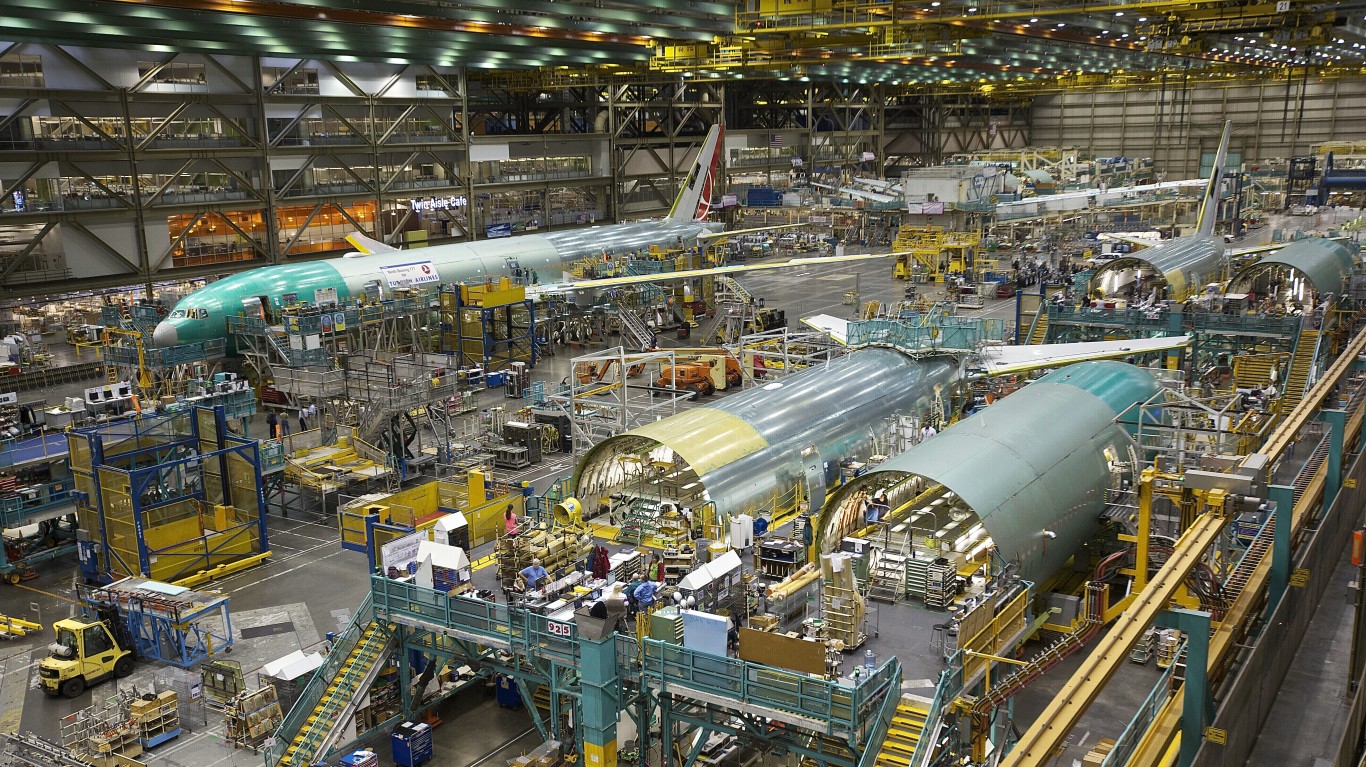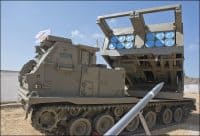
This past week has been an eventful one for Boeing Co. (NYSE: BA). On Tuesday the firm announced that former U.S. ambassador to the United Nations and former governor of South Carolina, Nikki Haley, has been nominated to Boeing’s board of directors. Also, the company’s proposed partnership with Brazil’s Embraer S.A. (NYSE: ERJ) was approved by Embraer’s shareholders, and a new unmanned training platform was announced.
On Wednesday, the airplane maker took orders for 100 additional 737s from Vietjet Airlines and 10 787 Dreamliners from another Vietnamese airline, Bamboo Airways. At list prices, the Vietjet order is valued at $12.7 billion and the Bamboo Airlines order is valued at $3 billion.
Thursday morning, Boeing announced a firm order from International Consolidated Airlines Group (IAG), the parent of British Airways, for 18 777-9s with options on an additional 24 aircraft. At list price, the deal is worth $18.6 billion, if all the options are exercised.
Of all these events, the British Airways order may be the biggest deal. The airline, which was an early customer for Boeing’s 747, has now indicated that it plans to replace those aging jumbo jets with the new 777s. The first test flight for the aircraft is due later this year, although the first 777-9 to roll off the assembly line is rumored already to have been spotted at Boeing’s Everett, Washington, plant.
The 777-9 is Boeing’s most expensive airplane, carrying a list price of $442.2 million per copy. The 787-9 Dreamliners sold to Bamboo Airways cost $292.5 million apiece, and the 737-8s and 737-10s ordered by Vietjet run to $121.6 million and $134.9 million, respectively. Vietjet’s order included 20 737-8s valued at around $2.43 billion. The 18 777-9s ordered by British Airways are valued at nearly $8 billion, almost four times as much.
Boeing’s backlog indicates that the order book for 737 family aircraft, with 4,699 planes at the end of January, is more than 10 times greater than the 777 family backlog of 424 (358 are new 777X models, including the order from British Airways). Each of those 777s is worth nearly four times the revenue as one 737.
Boeing will no longer build 747 passenger jets, and Airbus recently called an end to its A380 superjumbo jet. In addition to the vast difference in revenue to Boeing from 777 sales (the 777-9 costs $150 million more than a 787-9), the company needs the plane to retain its (slim) leadership in the twin-aisle category.
The twin-engine, twin-aisle 777 and 787 are Boeing’s hopes against the Airbus A330 and A350 families. Boeing CFO Greg Smith said earlier this year that selling more 777s is a priority for 2019. Boeing’s backlog for both families is 1,038, while Airbus’s backlog for its A330 and A350 at the end of January was 948, not including February’s orders.
When Airbus announced the demise of the A380, the company’s biggest customer for the superjumbo, UAE carrier Emirates, canceled further orders for the plane but did order a total of 40 Airbus A330s and A350s, and Delta is about to take delivery of the first of 35 A330-900s it has on order. Competition will be fierce for these dual-aisle, twin-engine planes, and this is not a battle Boeing can lose.
Boeing stock broke the $400 per share barrier earlier this month and has not closed below that level since February 11. Shares closed at $435.44 last night after posting a new 52-week high of $436.33 earlier in the day. The stock’s 52-week low is $292.47 and the 12-month consensus price target is $440.00.
Take Charge of Your Retirement In Just A Few Minutes (Sponsor)
Retirement planning doesn’t have to feel overwhelming. The key is finding expert guidance—and SmartAsset’s simple quiz makes it easier than ever for you to connect with a vetted financial advisor.
Here’s how it works:
- Answer a Few Simple Questions. Tell us a bit about your goals and preferences—it only takes a few minutes!
- Get Matched with Vetted Advisors Our smart tool matches you with up to three pre-screened, vetted advisors who serve your area and are held to a fiduciary standard to act in your best interests. Click here to begin
- Choose Your Fit Review their profiles, schedule an introductory call (or meet in person), and select the advisor who feel is right for you.
Why wait? Start building the retirement you’ve always dreamed of. Click here to get started today!
Thank you for reading! Have some feedback for us?
Contact the 24/7 Wall St. editorial team.
 24/7 Wall St.
24/7 Wall St.



